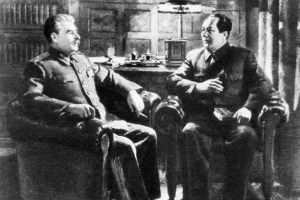
Published 14/12/2023 09:18 | Edited 15/12/2023 08:22
“Wake me up when September is over,” asked Green Day singer and guitarist Billie Joe Armstrong, in the melancholic lyrics of Wake me up when september ends. The song spoke of mourning. At the age of ten, in September 1982, Billie Joe lost her father, Andrew Armstrong, to cancer. Depressed, the boy returned from the funeral and was confined to his room. When his mother knocked on the door and tried to cheer him up, he asked her to wait for September to end.
It is with this feeling of deep and temporary mourning that Argentines seem to live the first days under the Javier Milei government. Sworn into office at the Casa Rosada on Sunday (10), the president instructed his Economy Minister, Luis Caputo, to announce on Tuesday (12) the measures of the “Chainsaw Plan” – a fiscal package that would be the envy of the most ardent neoliberals.
The ad was botched. Instead of participating in a press conference to immediately answer any questions, Caputo preferred to release a 15-minute video. The recording could suggest more care and rigor with the information. It wasn’t quite like that.
The new government’s main focus was on the maximum devaluation of the Argentine peso. With the exchange rate adjustment, US$1 went from 365 pesos to 800. It seems that the next exchange rates will have less and less interference from the Central Bank. There were also increases in taxes which, in theory, make imports more expensive. According to Caputo, the “productive sectors” need “adequate incentives”, without “discriminating against agriculture”.
While much of the effects of currency devaluation will only be felt in the medium and long term, there were points in the fiscal package that will have an immediate impact, especially for low-income families. This is the case of reducing subsidies for energy and transport. Caputo said that the Argentine State “artificially supports very low prices” for essential public services.
The counterpart to the subsidies would be more inflation – “what they give you in the invoice price they charge you in increases at the supermarket”. The problem is that, without the direct participation of the State, there will be immediate adjustments to electricity and gas bills, as well as train and bus fares. Thus, Milei/Caputo’s inglorious mission is to convince the population that more inflation is now the solution to combat hyperinflation. It’s as if a house was in the grip of a flood and a specialist proposed flooding it with more water.
It has already been said that the biggest drawback for neoliberalism is that there are the poor, the miserable, the lumpen population. The “shock” of the new government pleased the IMF (International Monetary Fund), which described the “initial actions” already announced as “audacious”. “Its decisive implementation will help stabilize the economy and lay the foundations for more sustainable growth led by the private sector,” the institution said in a statement.
But, until this utopian stability is reached, who will protect those who the IMF itself calls “the most vulnerable in society”? Without giving details, Caputo promised to reinforce programs to help mothers. “The president has asked us to fundamentally focus on the people who may suffer most from this,” he said.
However, while most measures have defined goals and deadlines, helping the people remains a vague promise. Argentines now know that there will be no contracting for new public works, that official advertising is suspended for a year and that the number of ministries has fallen from 18 to nine. They just don’t know how they are going to eat and survive during the “Chainsaw Plan” period.
In November alone, according to Indec (National Institute of Statistics and Census), inflation in the country was 12.8%, accumulating an increase of 160.9% in 12 months. The price rise in 2023 will be the biggest in more than three decades. This Wednesday (13), with the intense price markdown, there was already a rush to gas stations and supermarkets. In one day, the first of the fiscal “package”, a liter of regular gasoline in Buenos Aires shot up from 446 pesos (R$5.95) to 612 pesos (R$8.22).
The inevitable social and economic chaos could shorten Milei’s term, who was elected to a four-year term. The government asks for time and patience for better days. Argentines, in mourning, want to shorten the nightmare – or only wake up when the current trauma is behind them. Wake me up when september ends.
Source: vermelho.org.br

